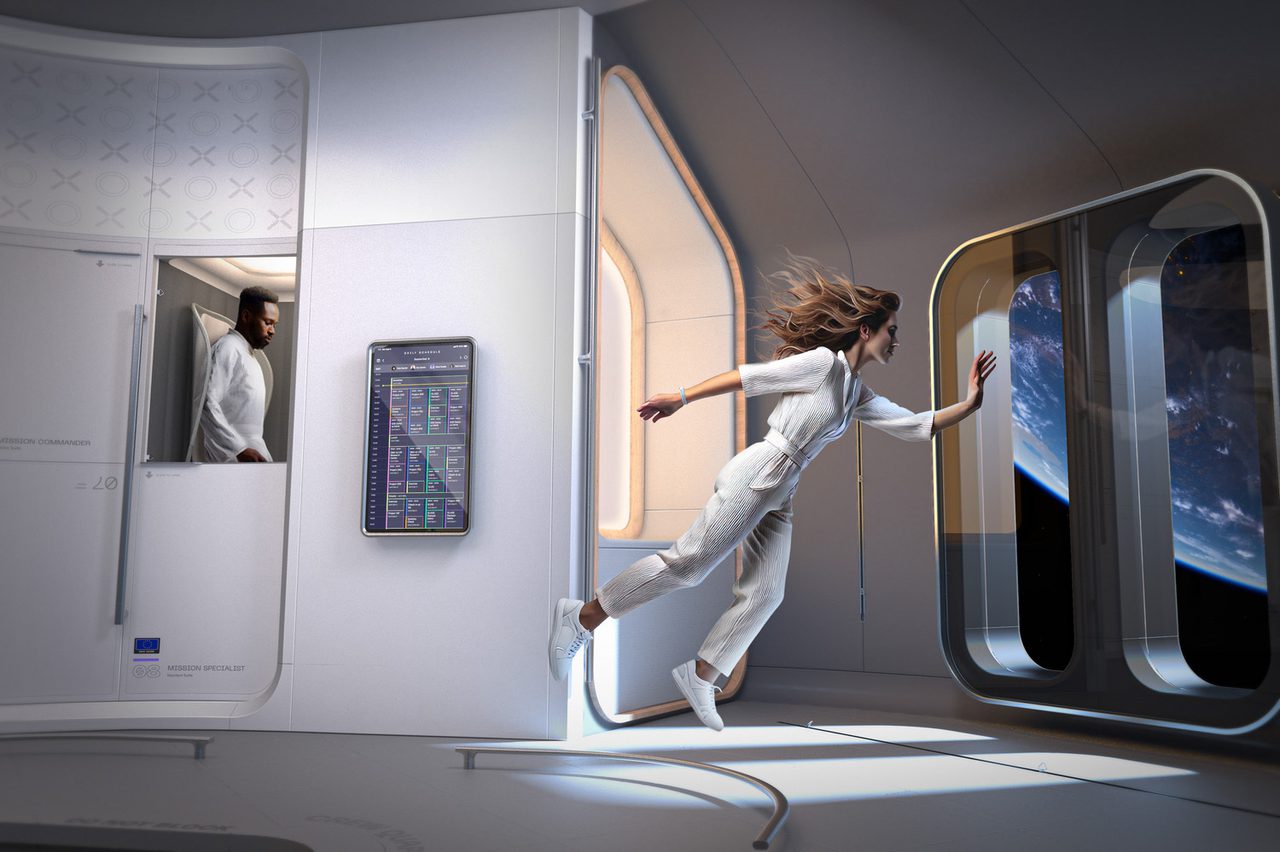
Aviation
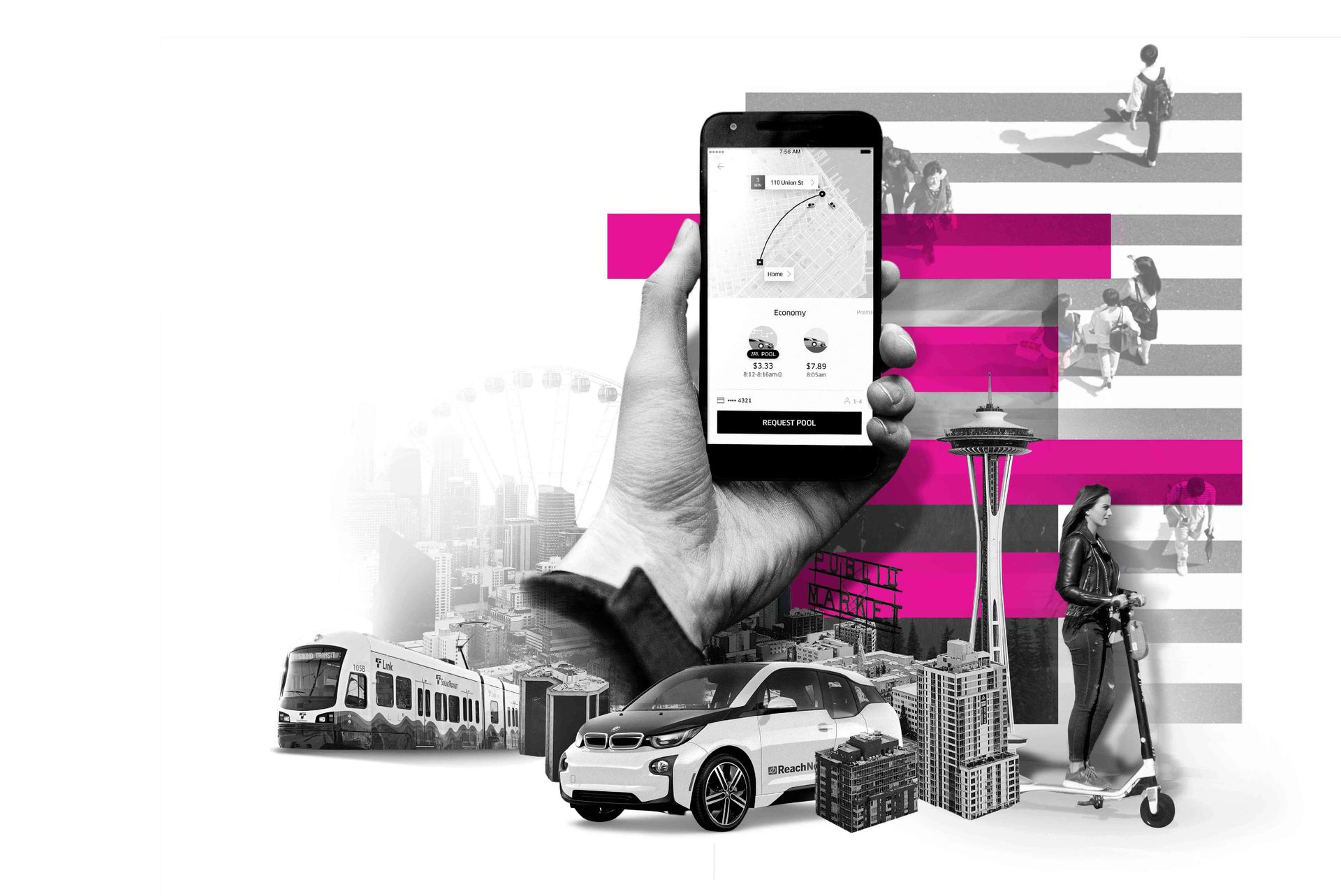
Transportation is the lifeline of cities and economies the world over. As mobility ecosystems evolve to include carsharing, electric bikes, scooters, and rideshare companies, how will existing public infrastructure work to reconcile the shift brought about by these new players?
In collaboration with the Seattle Design Festival, Teague brought together a panel of professionals from every corner of the industry to address this behemoth problem. Experts from ReachNow, Lime, Seattle Department of Transportation, D’Artagnan Consulting, and Sound Transit convened to discuss the multi-modal transportation situation currently unfolding in our burgeoning city.
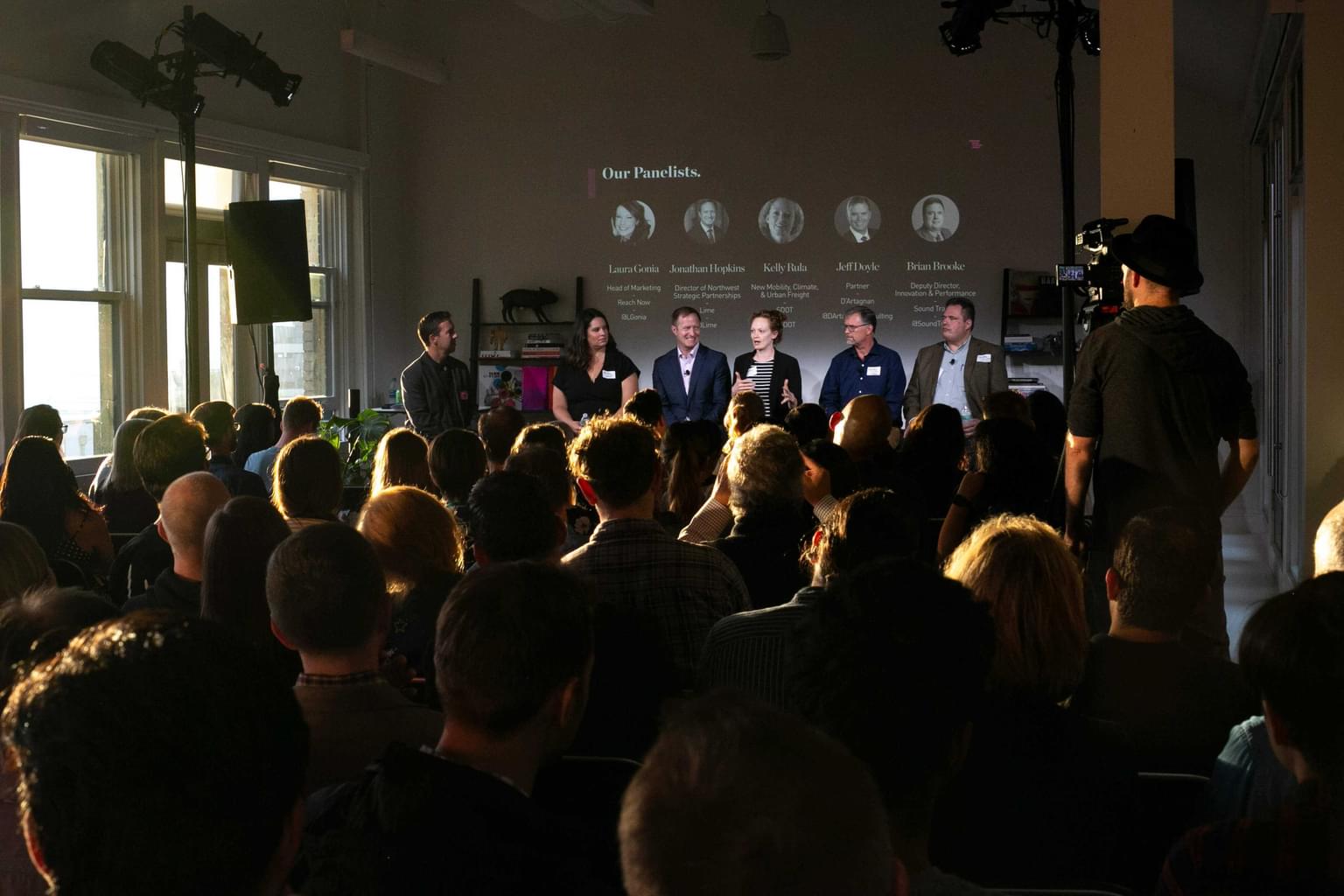
Laura Gonia, Head of Marketing for ReachNow began our conversation highlighting one of the overarching themes of the evening: the need for cross-sector cooperation.
“I feel like transportation is at the heart of something that could make lives better. Those moments that you're trying to get to where you want to go are often painful.” she states. “If we, through this kind of collective effort to improve urban mobility both within Seattle and around the world, then that's a great task and a great challenge to pursue. I'm still optimistic that there is room for opportunities and new ideas, and better partnerships to make that real.”
"I feel like transportation is at the heart of something that could make lives better."
We as consumers know that cost and convenience are huge drivers of passenger and commuter behavior and decision making. On the other hand, governing agencies are charged with reducing carbon emissions and combating congestion on city streets.
“I think my goal has been pretty clear about how to make cities better places without having to just put people in metal boxes and ship them around.” shares Jonathan Hopkins, Director of Northwest Strategic Partnerships at Lime.
“There are some huge opportunities, if we do it right,” he continues, “to help people discover new ways that they actually might enjoy more than putting themselves in a metal box to get around, whether it's on transit, whether it's on a scooter or a bike, or just walking. That's kind of the exciting part. The pieces that daunt me, that I'm concerned about is if we get the incentives and the policy wrong, we could mess it all up right?”
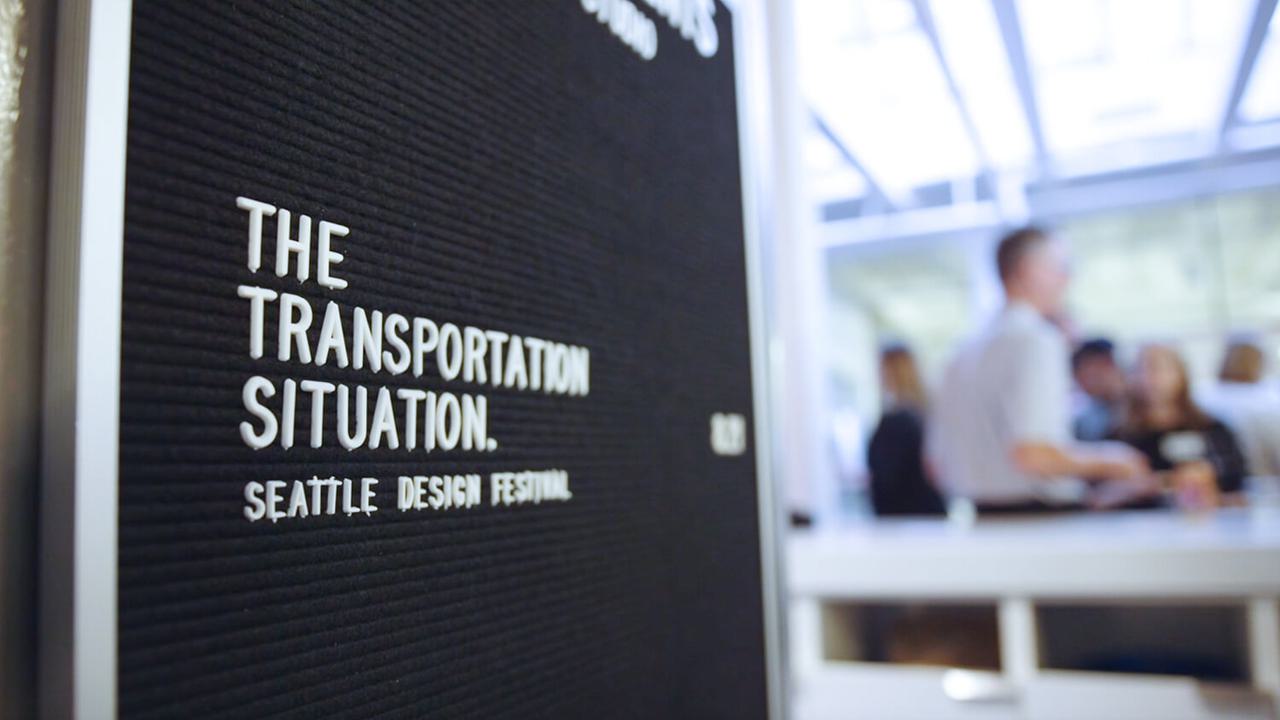
How a brand thinks about customers is different from how a public agency thinks about citizens. Companies like Uber and Lyft appeared on the scene and changed mobility as we know it, allowing technology to integrate into the fabric of urban transportation systems, but also causing chaos in the process. The introduction of on-demand transportation (mobility-as-a-service) would retroactively require policy to quell the upheaval it created. It’s induced a need for governmental regulations, and more importantly, the establishing of alliances between the public and private sectors.
Deputy Director of Innovation and Performance at Sound Transit, Brian Brookes, shares his insights, “A public sector agency isn't focused on the net revenue; it's creating whatever the political body tells it to create. That's the value that it's shooting for. It could be social equity, it could be safety improvements, could be improving sustainability. It's across the board, and it varies from jurisdiction to jurisdiction depending on who the political decision makers.”
“The private sector responds to incentives, the public sector responds to votes.” Hopkins adds, “The private sector accepts more risk because there is a reward at the end. The public sector avoids risk because, well, it's risk.”
"We're at a crossroads of ‘how do we figure out how to both’? How do we integrate and manage, both now and in the future?"
Jeff Doyle, Partner at D’Artagnan Consulting, adds his thoughts through the lens of policy expertise. “The one thing that concerns me most is the far extremes within the policy realm that are more focused on winning and getting an advantage over the ‘team’ than they are necessarily arriving at good and sustainable policy solutions.” he states, “This makes it really hard for those of us that have to operate in a realm where we're trying to promote and create sustainable transportation policies to have success.”
Brookes advocates for meeting in the middle. “Looking at how can we partner with some of the private mobility providers that are coming, what are the sort of business models we can pursue in conjunction with our local jurisdictional partners, how can we better leverage data to understand our markets and deliver value to the communities we serve.”
Panelist Kelly Rula, who focuses on New Mobility, Climate, & Urban Freight, Transit & Mobility for the Seattle Department of Transportation, added one more layer of complexity to our panel.
“Looking through a city-centric lens, we're at a crossroads of ‘how do we figure out how to both’? How do we integrate and manage, both now and in the future? I think we have a really tough road ahead, especially when I look out to autonomous vehicles. It gives me a lot of heartburn because there's a huge incumbent industry there that is not the scooter, or bike, or car share space, but the automaker industry. For multiple facets, getting to a place that works for both private and public won’t be easy.”
And speaking of scooters and bikes…
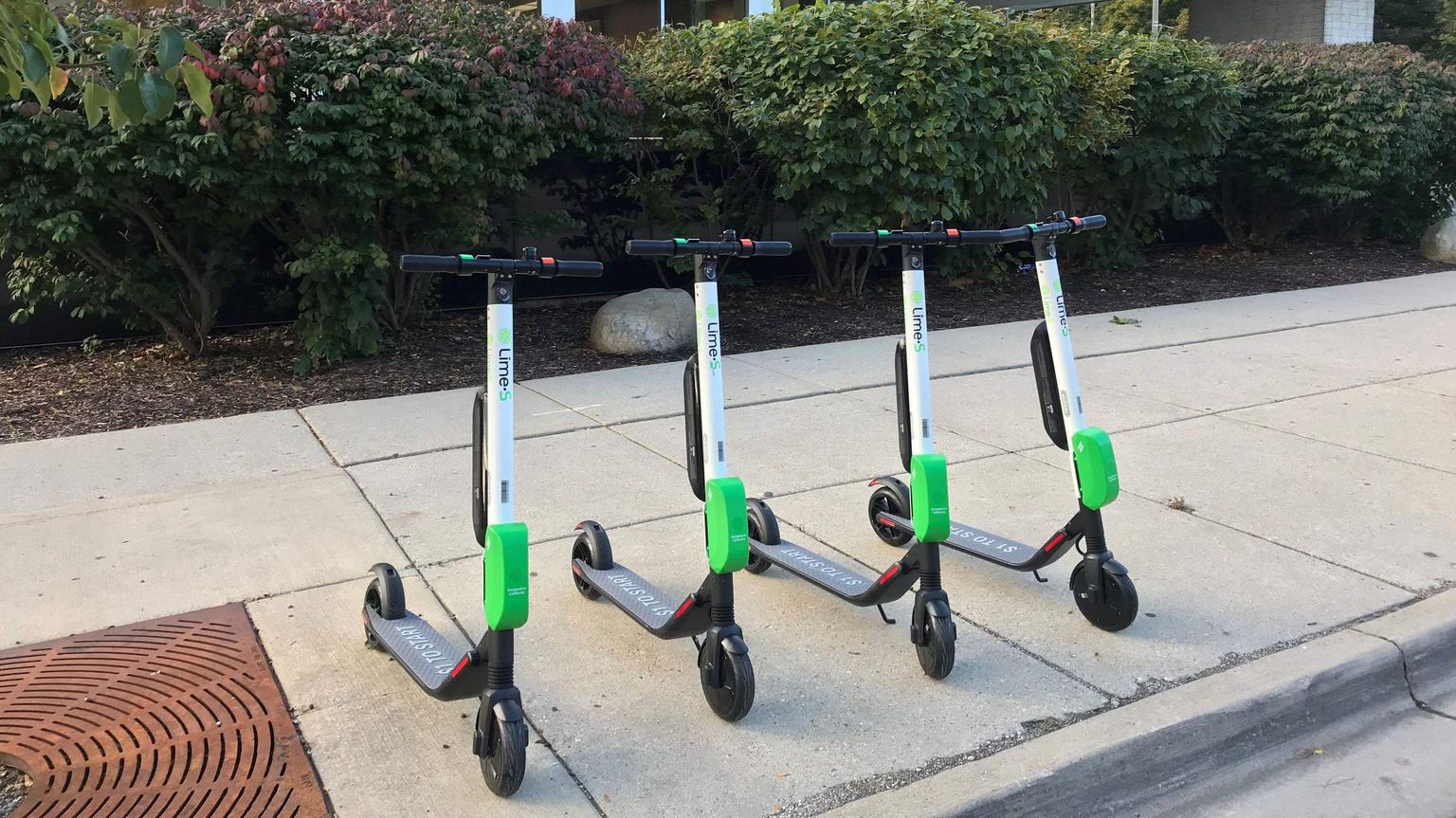
To the delight of some, and the displeasure of others, micro-mobility solutions have taken up residence on sidewalks in cities around the globe. They’ve proven to be a major point of contention for municipalities like Seattle, leading our moderator Devin Liddell to ask, “Are scooters the heroes, or are they villains?”
Hopkins chimes in to debunk some false assumptions.
“So the myth is, it's just rich hipsters in Brooklyn that are riding scooters. However, our data shows that in Portland, 15% of our ridership makes less than $25k a year per household. Yes, there are stereotypical riders. But there are also people who have two jobs and four kids that frequently ride as well.
“Others demographics, such as people of color, are overrepresented amongst our ridership. Women ride scooters more than they ride bikes, percentage-wise. And 20% of our riders say their last trip was connected to public transit. It’s quite diverse.”
Kelly Rula makes a case for sharing this data in order to properly prepare and inform both governments, their cities, and consumers for new incoming mobility solutions.
"In the past, we retroactively responded to this new tech. This time we want to step back and say, ‘Hey everybody, we want to hear from you before we show you something that's already been rolled out.’"
“I think we're doing some really interesting things in the micro-mobility space and in the new mobility services space in terms of cities; for example public/private partnerships around data. Everyone uses this example, but it's a great one, the ridesharing example: They came into the market, cities weren't ready, municipalities weren’t ready, and they didn't get ahead of the data sharing, or what that should look like in order to really understand, and therefore build, good policy and regulate these new services.
“That's what we're doing with the scooter pilot; we're kicking off a big public engagement process, taking it slow, and really trying to take everything to heart. Unfortunately, we didn’t do that with our bike-sharing pilot. We got it out really fast.”
Rula continues on to shares the approach taken by the Seattle Department of Transportation to correct some of the chaos brought about by the introduction of bikes by deploying scooters in Seattle with careful consideration of their impact on urban riders,
“In the past, we retroactively responded to this new tech. This time we want to step back and say, ‘Hey everybody, we want to hear from you before we show you something that's already been rolled out.’"
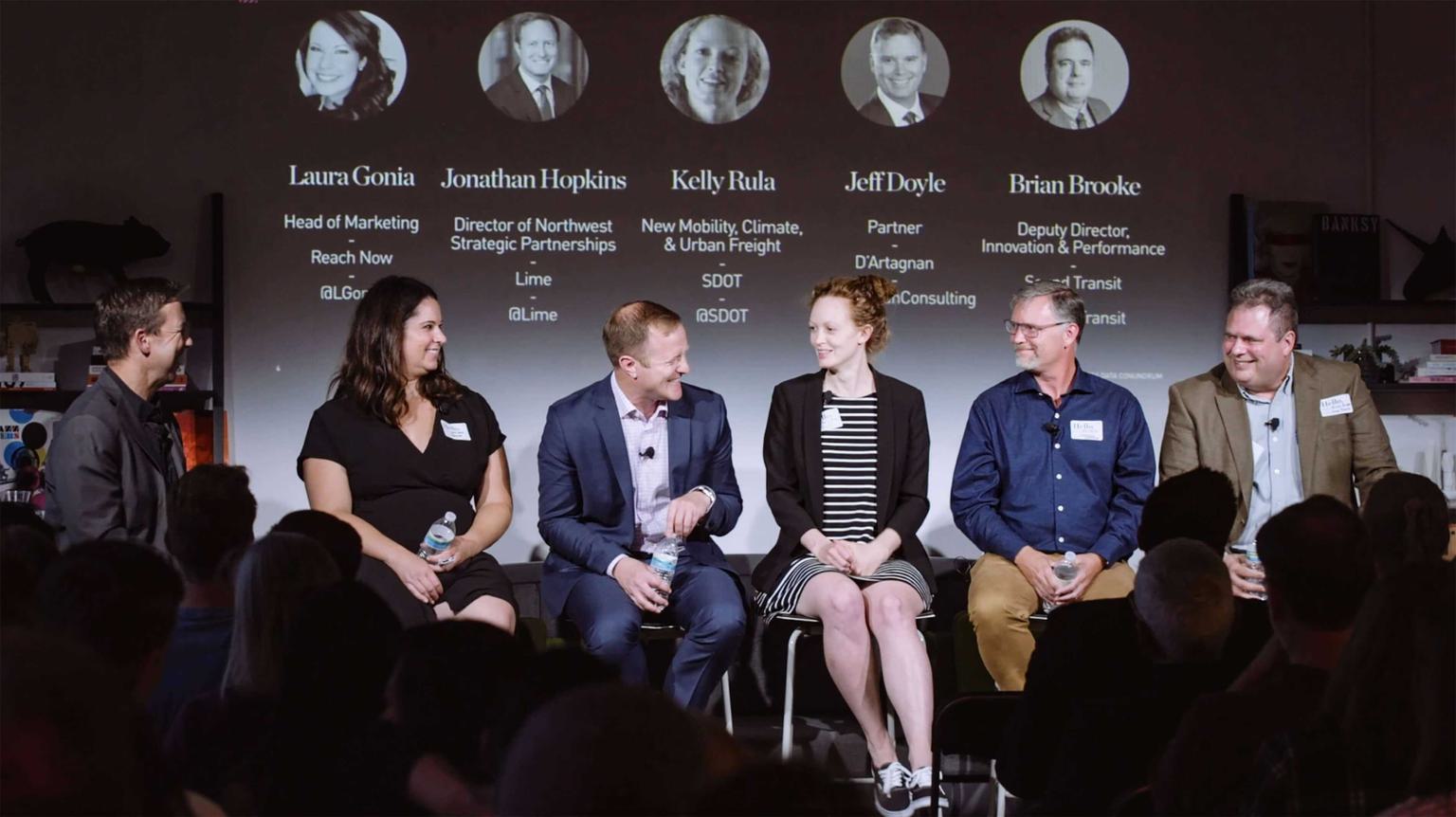
By the close of our discussion, our panelists began to echo a similar ideal, one that would require government agencies and public entities to proactively engage solutions in response to transportation network companies introducing new technology.
By collaborating and experimenting alongside their private sector counterparts, instead of in isolation, the possibility of developing a mobility infrastructure that reflects the values of passengers and riders, and serves the needs of a community, is closer than we think.
“I think the world has changed in a good way.” concludes Doyle, “It's confirmed up here, all the talk about pilot projects. What would be better than trying to sell a solution to the public that's already been designed by government, is to involve the public in advance in the co-creation of whatever the solution is. We’re all trying to make it more participatory design, more user-centered design.”
“Partnership is key in figuring out how to lower some of those walls, trust, and incentivize appropriately to get the best outcomes for everybody out there.” adds Hopkins.
A final statement from Brookes left an audience of over 150 Seattleites pondering an important question, “How do we rethink the capital investments that we're making? How do we think the regulatory environment on the curb? We don't have the right answers for that, but we know that the pressure's growing to solve those issues.”
_____
If you missed our event, or simply want to relive the action, you can watch the full recording of the evening’s discussion below, or here on Vimeo.